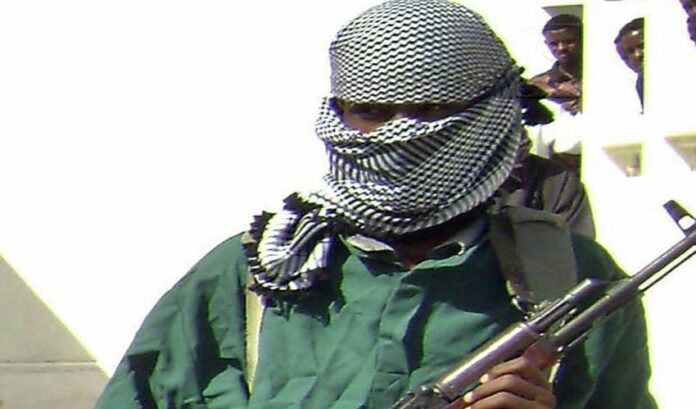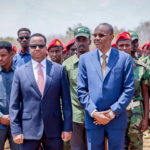The al-Shabab militant group has an annual budget of $24 million to spend on purchasing weapons, a new report finds.
The report by a Mogadishu-based research group, the Hiraal Institute, said the group uses various methods to procure weapons, including direct purchases from local black markets, and from arms traders contracted to buy and deliver weapons from abroad, mainly Yemen.
Hiraal said the acquisition of firearms, ammunition, explosives and other lethal capacity weapons remains a priority for al-Shabab, with nearly a quarter of its budget going to such transactions.
“Out of an annually planned expenditure of approximately USD 100 million, al-Shabab’s annual planned expenditure on arms procurement is assessed to be USD 24 million, budgeted monthly at USD 2 million,” the report said.
Samira Gaid, the executive director of Hiraal Institute, told VOA Somali that during research they had access to al-Shabab’s annual budget documentation. They have also interviewed former al-Shabab members, clan leaders, business owners, government officials and other sources who have knowledge of how the group functions.
“Just like the FGS [Federal Government of Somalia], the biggest chunk of its resources is currently being spent on security-related expenses; these, of course, include wages and operational costs,” Gaid said. “The group also manufactures certain types of ammunition and explosives, and a certain amount of its budget goes towards that.”
Al-Shabab has recently increased its attacks in Somalia as parliamentary elections continue at a sluggish pace. Since last week, the group has carried out multiple attacks in Mogadishu and the towns of Bosaso and Beledweyne.
On Monday, the group claimed responsibility for a roadside explosion, which targeted a convoy escorting Said Abdullahi Deni, the president of the semi-autonomous region of Puntland. Deni survived the attack, but two of his soldiers were killed and four others injured.
On Saturday, al-Shabab also claimed responsibility for a suicide bombing in Beledweyne in which 15 people were killed and at least 20 others injured.
To finance its operations, al-Shabab has a sophisticated extortion system which it uses to collect money from the business, agricultural, and livestock sectors, according to a 2021 United Nations report by the Panel of Experts on Somalia.
Al-Shabab as well as Islamic State militants have been collecting extortion money from businesses in Mogadishu for years. Last month, death threats from Islamic State led to the closure of some businesses that refused to pay extortion money. The stores later reopened after the government deployed security forces. Police also told the businesses they would not have the stores closed except on orders from the government.
The store closures forced Somali Prime Minister Mohamed Hussein Roble to instruct Interior Security Minister Abdullahi Mohamed Nor and the security agencies to come up with a plan to counter the terrorist threats and harassment of traders at Somalia’s biggest market.
The U.N. Panel of Experts report on Somalia estimated that al-Shabab now operates around 100 checkpoints throughout the country. In one of the most profitable checkpoints north of Kismayo town, which sees an average of 30 trucks pass through in a 24-hour period, the panel reported that al-Shabab collects an estimated $15,000 to $30,000 per day.
Hiraal recommended the implementation of several measures aimed at disrupting al-Shabab’s weapons purchases, including the targeting of key militant explosive experts, targeting individuals involved in the arms trade and countering arms imports from the Gulf of Aden.






